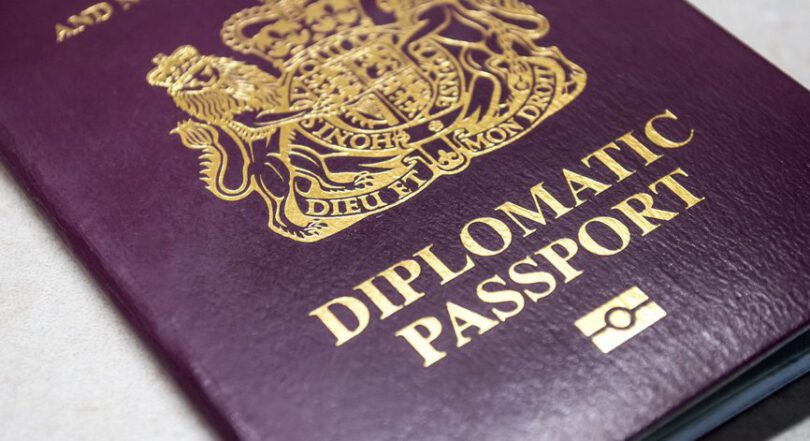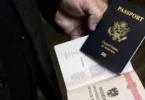The United Kingdom being the birthplace of the Common Wealth is a home for many foreign consulates and embassies. The United Kingdom was the world’s foremost power during the 19th and early 20th centuries, most notably during the so-called “Pax Britannica”—a period of unrivalled supremacy and unprecedented international peace during the mid-to-late 1800s. The country continued to be widely considered a superpower until the Suez crisis of 1956 and the dismantling of the British Empire left the UK’s dominant role in global affairs to be gradually diminished. Nevertheless, the United Kingdom remains a great power and a permanent member of the United Nations Security Council, a founding member of AUKUS, the Commonwealth, the Council of Europe, G7, G20, NATO, OECD, OSCE, and the WTO. The UK has been a member state of the European Union (and a member of its predecessors) since 1973. However, due to the outcome of a 2016 membership referendum, proceedings to withdraw from the EU began in 2017 and concluded when the UK formally left the EU on 31 January 2020, and the transition period on 31 December 2020 with an EU trade agreement. Since the vote and the conclusion of trade talks with the EU, policymakers have begun pursuing new trade agreements with other global partners. These have made many diplomat troops into the UK to carry out assigned duties of their native land. However, citizens be it diplomats or ordinary citizens may require a visa before they are allowed to work for their homeland. In this article, we intend to take readers through the process of getting a UK diplomatic visa.
Types of Diplomatic Visas
There are different types of UK diplomatic visas namely:
- Short-term Diplomatic Visa: issued by the UK government for a Diplomat visiting the UK for a duration not exceeding 3 months. Their purpose of visit includes attending seminars and conferences, and short medical treatment.
- Long-term Diplomatic Visa: For diplomats who are appointed to serve in the UK for an extended period, typically over 6 months, as part of their mission or posting.
- Transit Diplomatic Visa: issued for that diplomat will pass through the United Kingdom to other countries strictly for diplomatic purposes.
Who Is Eligible For A UK’s Diplomatic Visa?
Some countries’ diplomats may not require a visa for short stays or may have specific agreements with the UK that exempt them from the regular visa application process.
International citizens who are Diplomats and whose countries do not fall under those with a visa exemption arrangement with the UK will visit the UK for diplomatic purposes if they are:
- Diplomats: Representatives from foreign governments or diplomatic missions who are assigned to work in the UK.
- International Organization Representatives: Officials from international institutions such as the United Nations, NATO, or the European Union who need to visit the UK for work-related matters.
- Government Employees: Individuals sent by their home governments to perform specific functions, such as attending international summits, official visits, or bilateral discussions.
- Members of Diplomatic Missions: This includes consular staff, political appointees, and other individuals associated with the official foreign missions to the UK.
Application Process
To apply for a UK Diplomatic Visa, applicants must generally follow these steps:
- Complete the Application: Applicants will need to fill out the appropriate visa application form, available on the UK Government website or through the embassy or consulate.
- Submit Supporting Documents: Required documentation often includes a formal invitation or diplomatic note, proof of the official nature of the visit, travel details, and possibly a letter from the applicant’s home government or international organization.
- Attend an Interview (if necessary): Depending on the applicant’s nationality or the specifics of the visit, an interview at the UK consulate or embassy may be required.
Cost of getting a UK visa
Some diplomatic visa applicants may be exempt from fees, while others may need to pay a fee, depending on the type of visa and the applicant’s status.
Benefits of the Diplomatic Visa
A UK Diplomatic Visa comes with several advantages for the visa holder, including:
- Exemption from Standard Immigration Controls: Diplomats are often exempt from regular immigration controls, enabling quicker entry and exit from the UK.
- Diplomatic Immunity: Diplomats and their families typically enjoy a certain level of immunity from the laws of the host country, although this immunity can be waived under specific conditions.
- Special Privileges: Diplomatic visa holders may receive certain privileges, such as immunity from legal processes under the Vienna Convention on Diplomatic Relations, which protects them from prosecution or detention in the host country in certain circumstances.
- Extended Stay: Diplomats often enjoy the privilege of being able to stay in the UK for extended periods, with flexibility in terms of their work schedule and assignments.
- Family Members: The families of diplomats, including spouses and children, may also be eligible for diplomatic visas, allowing them to accompany the principal visa holder.
Restriction of diplomatic visa holders in the UK
While in the UK diplomats will not be able to Work in any British establishment outside their predetermined duties, they are generally forbidden from participating the any United Kingdom political activities.





